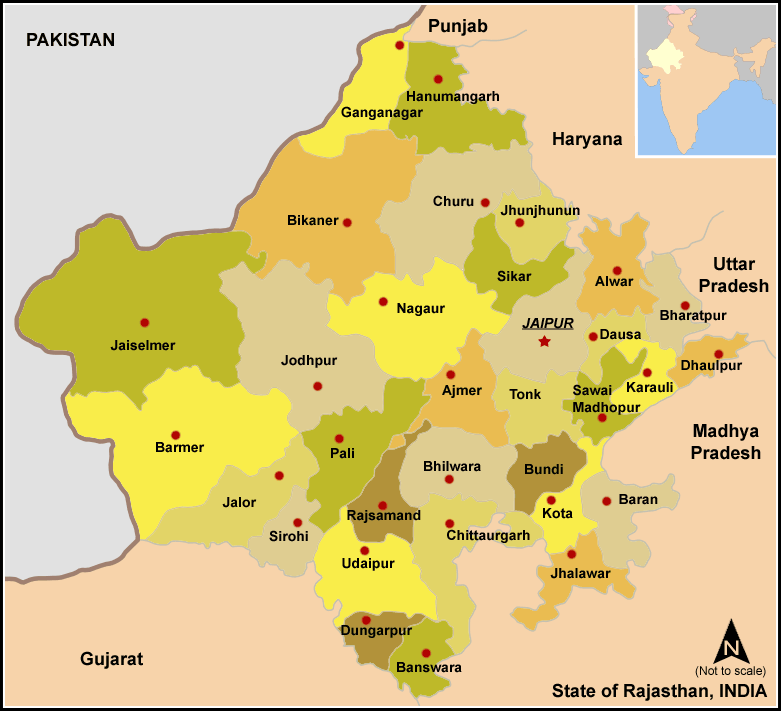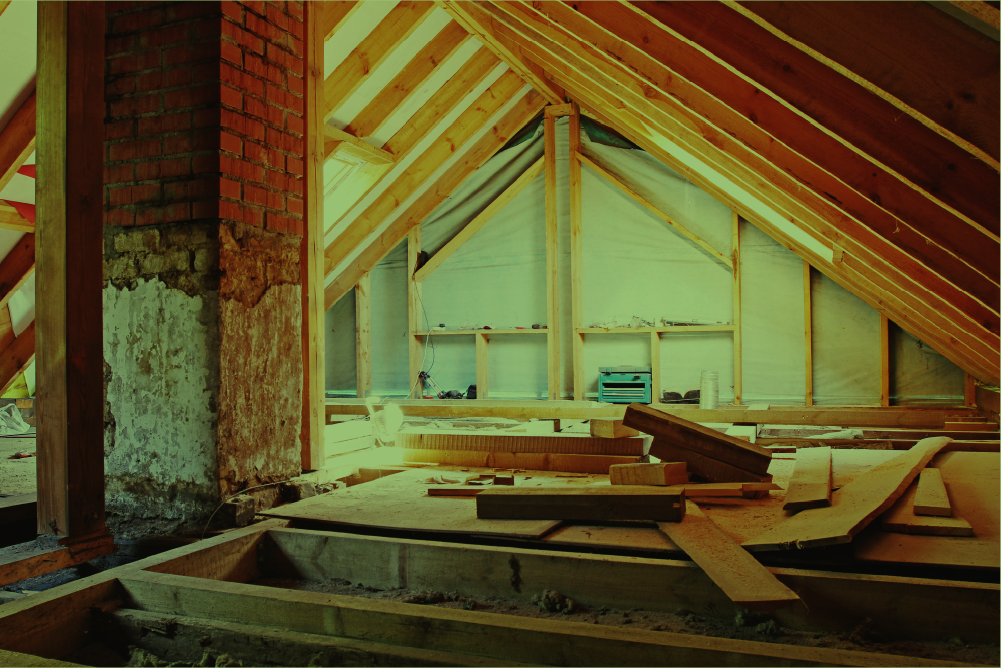
Map of Rajasthan, India
Most people in the United States today are aware that asbestos is a dangerous and potentially deadly substance. Asbestos is no longer commercially mined for domestic use in the U.S., and asbestos-containing products have largely been banned. There are a host of federal agencies such as the Environmental Protection Agency (EPA) and National Institute for Occupational Safety and Health (NIOSH) that work to protect workers and consumers from the hazards of asbestos. As a result, American workers are not usually exposed to raw asbestos without respiratory protection. In developing countries like India, however, the picture for workers is vastly different.
The Growth of the Indian Asbestos Industry
Despite the overwhelming scientific evidence that asbestos causes mesothelioma, lung cancer, and asbestosis, the Indian asbestos industry is alive and well. India is a leading importer of raw asbestos, purchasing hundreds of thousands of tons of chrysotile asbestos from Canada, Russia, Brazil, and Zimbabwe. Asbestos is also mined commercially in the Indian state of Rajasthan.
Most of this asbestos is manufactured into asbestos cement, which is widely used as a construction material in impoverished villages and shantytowns throughout India. The Indian asbestos industry has had great success in promoting asbestos cement roofing, pipes, and siding to India’s poor. According to the Indian business daily Business Standard, the asbestos cement industry in India produces almost 4.5 million tons of asbestos products annually, and is growing at a “healthy” 10-12 percent a year.
Unfortunately, it is becoming increasingly clear that Indian workers and consumers are paying a heavy price for this “healthy” growth in the asbestos industry. This large-scale industrial use of asbestos is leading to high rates of occupational exposure, household exposure, and environmental exposure. As a result, India is likely to face an epidemic of asbestosis, lung cancer, and mesothelioma
Indian Workers at Risk
Asbestos disease is already a major problem in the mining region of Rajasthan. Many of the asbestos mines there are operated illegally. According to the asbestos mine workers who attended a recent workshop by the Occupational and Environmental Health Network of India, the working conditions in the mines are horrendous. Not surprisingly, this has led to a high rate of asbestos disease among the miners. The India Times recently reported that three former mining workers from a single mining district have died of asbestosis in the last six months alone.
Working conditions in India’s asbestos processing plants are also extremely hazardous. A recent study of the small-scale asbestos mills of Rajasthan showed that many workers in these units are diagnosed with asbestosis after only five years of exposure, far less than the usual 20 year latency period. Researchers also reported extremely high concentrations of airborne asbestos fibers in these plants, up to 18-22 fibers per cubic foot of air. By contrast, the permissible exposure limit in the U.S. is 0.1 fiber/cc.
In addition to this heavy occupational exposure in the asbestos mines and processing plants, there is also a high risk of secondary exposure among users of asbestos products. Construction workers and pipefitters often cut asbestos cement pipes and roofing as they are installed, generating large amounts of asbestos dust that settle over the nearby streets and houses. This puts both the workers and the nearby residents at risk for mesothelioma and other asbestos diseases.
The Asbestos Industry’s Pattern of Denial
Indian labor unions, environmental groups, and public health experts are working hard to educate the Indian people about the hazards of asbestos, and have repeatedly asked the Indian government to ban the mining and manufacture of asbestos products in India. Unfortunately, the Indian asbestos industry has been largely successful in whitewashing the hazards of asbestos, thereby insulating themselves from any real accountability for the harm caused by their toxic product.
Rather than warning workers and consumers about the deadly properties of asbestos, Indian asbestos industry officials continue to insist that their product is safe, and even environmentally friendly. In an interview with the Toronto Star, an executive at Visaka Industries insisted that the company’s asbestos cement products were not at all hazardous to workers or consumers, and were “not creating carcinogenicity in any way.” Indeed, he went so far as to state that asbestos “is such an environmentally friendly product actually.” Likewise, in a recent Business Standard story, industry officials described the production of asbestos cement as “environmentally benign,” and insisted that their products were perfectly safe.
Tragically, this approach seems to be working. Rather than banning asbestos, the Indian government is currently considering an expansion of asbestos mining in Rajasthan to promote economic development in this very poor region. Unless the situation changes dramatically, it appears that India will be facing an epidemic of mesothelioma and other asbestos diseases for many decades to come.
Brig Sethi, executive director of the Asbestos Cement Products Manufacturers’ Association






